Filter by
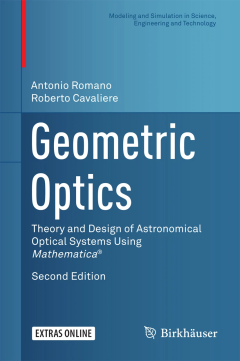
Geometric Optics
This text, now in its second edition, presents the mathematical background needed to design many optical combinations that are used in astronomical telescopes and cameras. It uses a novel approach to third-order aberration theory based on Fermat’s principle and the use of particular optical paths (called stigmatic paths) instead of rays, allowing for easier derivation of third-order formulae…
- Edition
- -
- ISBN/ISSN
- 978-3-319-43731-6
- Collation
- -
- Series Title
- -
- Call Number
- 510 ROM g
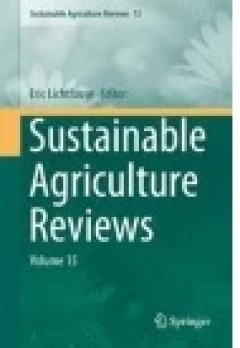
Sustainable Agriculture Reviews
Sustainable agriculture is a rapidly growing field aiming at producing food and energy in a sustainable way for humans and their children. It is a discipline that addresses current issues: climate change, increasing food and fuel prices, poor-nation starvation, rich-nation obesity, water pollution, soil erosion, fertility loss, pest control and biodiversity depletion. This series gathers review…
- Edition
- -
- ISBN/ISSN
- 978-3-319-09132-7
- Collation
- IX, 407
- Series Title
- Sustainable Agriculture Reviews
- Call Number
- -
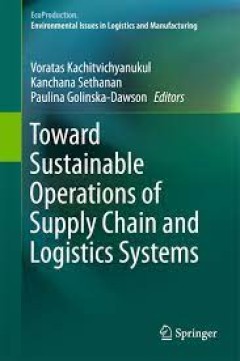
Toward Sustainable Operations of Supply Chain and Logistics Systems
This book addresses critical issues in today’s logistics operations and supply chain management, with a special focus on sustainability. In dedicated chapters the authors address aspects concerning multimode logistics operations, reverse network configuration, forward and reverse supply chain integration, improvement of the production operations and management of the recovery activities, as w…
- Edition
- 1
- ISBN/ISSN
- 978-3-319-19005-1
- Collation
- XI, 550
- Series Title
- EcoProduction
- Call Number
- -
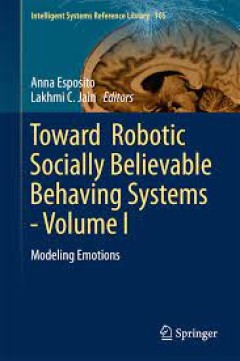
Toward Robotic Socially Believable Behaving Systems - Volume I
This volume is a collection of research studies on the modeling of emotions in complex autonomous systems. Several experts in the field are reporting their efforts and reviewing the literature in order to shed lights on how the processes of coding and decoding emotional states took place in humans, which are the physiological, physical, and psychological variables involved, invent new mathemati…
- Edition
- 1
- ISBN/ISSN
- 978-3-319-31055-8
- Collation
- XVI, 240
- Series Title
- Intelligent Systems Reference Library
- Call Number
- -
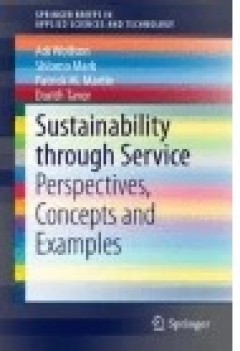
Sustainability through Service
This book discusses the mutual relationship between service and sustainability. It covers methodologies and approaches and describes measurements and tools that can promote sustainability on the service market. Lastly, it presents the different applications of sustainability, together with examples of sustainable services. Environmental concerns have become integral to any decision-making proc…
- Edition
- -
- ISBN/ISSN
- 978-3-319-12964-8
- Collation
- VIII, 85
- Series Title
- SpringerBriefs in Applied Sciences and Technology
- Call Number
- -

Adaptive Identification of Acoustic Multichannel Systems Using Sparse Represe…
This book treats the topic of extending the adaptive filtering theory in the context of massive multichannel systems by taking into account a priori knowledge of the underlying system or signal. The starting point is exploiting the sparseness in acoustic multichannel system in order to solve the non-uniqueness problem with an efficient algorithm for adaptive filtering that does not require any …
- Edition
- Ed. 1
- ISBN/ISSN
- 978-3-319-08954-6
- Collation
- XIV, 113
- Series Title
- T-Labs Series in Telecommunication Services
- Call Number
- 620.2 HEL a
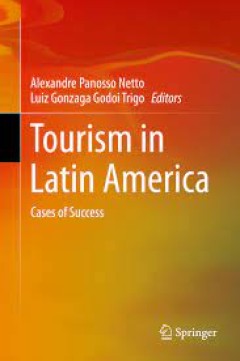
Tourism in Latin America
This book presents eleven case studies of success about Latin America tourism. The cases are embedded in a framework describing the economic and cultural foundations of tourism development in the continent. Mexico, Brazil, Chile and Costa Rica are some of the Latin countries which have become examples and models for touristic development, respect for the environment and social inclusion. The bo…
- Edition
- 1
- ISBN/ISSN
- 978-3-319-05734-7
- Collation
- XII, 246
- Series Title
- -
- Call Number
- -
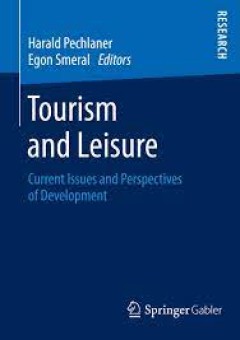
Tourism and Leisure
The Festschrift in honor of Prof. Dr. Peter Keller, president of the International Association of Scientific Experts in Tourism (AIEST) since 1994, represents a wide range of tourism research as well as the current state of the ongoing debates in tourism as a scientific research field. The aim is to cover multiple topics and trends in travelling and to discuss future development possibilities i…
- Edition
- 1
- ISBN/ISSN
- 978-3-658-06659-8
- Collation
- IX, 389
- Series Title
- -
- Call Number
- -
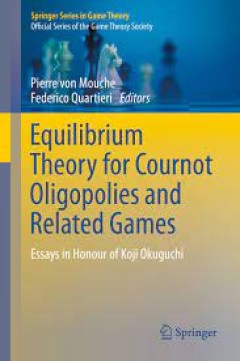
Equilibrium Theory for Cournot Oligopolies and Related Games Essays in Honou…
This state-of-the-art collection of papers on the theory of Cournotian competition focuses on two main subjects: oligopolistic Cournot competition and contests. The contributors present various applications of the Cournotian Equilibrium Theory, addressing topics such as equilibrium existence and uniqueness, equilibrium structure, dynamic processes, coalitional behavior and welfare. Special emph…
- Edition
- -
- ISBN/ISSN
- 978-3-319-29254-0
- Collation
- 23 b/w illustrations, 2 illustrations in colour
- Series Title
- -
- Call Number
- -
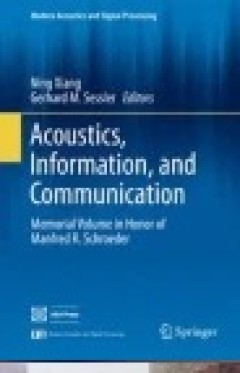
Acoustics, Information, and Communication: Memorial Volume in Honor of Manfre…
This book explores the life and scientific legacy of Manfred Schroeder through personal reflections, scientific essays and Schroeder’s own memoirs. Reflecting the wide range of Schroeder’s activities, the first part of the book contains thirteen articles written by his colleagues and former students. Topics discussed include his early, pioneering contributions to the understanding of statis…
- Edition
- Ed. 1
- ISBN/ISSN
- 978-3-319-05660-9
- Collation
- XVIII, 461
- Series Title
- Modern Acoustics and Signal Processing
- Call Number
- 620.2 ACO a
 Computer Science, Information & General Works
Computer Science, Information & General Works  Philosophy & Psychology
Philosophy & Psychology  Religion
Religion  Social Sciences
Social Sciences  Language
Language  Pure Science
Pure Science  Applied Sciences
Applied Sciences  Art & Recreation
Art & Recreation  Literature
Literature  History & Geography
History & Geography